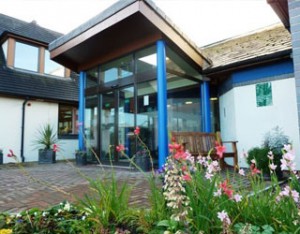For many of you, your cancer will have been discovered whilst you were feeling well and healthy – either through some sort of screening programme, through investigations for another illness or for a relatively innocuous symptom. You may have had few – if any – times when you felt ill or had very troubling symptoms (I know this is not true for all, but it is a common experience nonetheless). And then you hear the diagnosis, that word that will be forever etched in your memory. How is it possible to have the disease that so many dread without feeling sick?
This is another of the many paradoxes of cancer. Surely if you are ill then you should feel ill? This doesn’t last long however, because you then start treatment – and for most people that’s when they start feeling ill. All the treatments change your body in one way or another, sometimes permanently and often for a period of time that lasts much longer than the treatment itself. One of the consequences of all this is that you may lose faith in your ability to recognize when something is wrong with your body. After all, you may not have been able to tell that you had cancer in the first place and your body is now significantly changed so that there is a whole set of new and unusual sensations to experience.
This is most marked in the period after treatment when the anxieties are still high and the uncertainty at a peak. Is this lump the cancer coming back? What does that pain mean? Should I go back to the clinic, just in case? Such anxieties are perfectly understandable under the circumstances. The rules have changed and you need to learn a new way of handling the aches and pains, lumps and bumps that you would not have given second thoughts to before all this started. This will all be made worse by a perceptual bias and hypersensitivity to these changes. You will be on the lookout for them in away that you were not before. This is a combination of doing what you have probably been told to do by the staff and your own real anxieties and fears. Previously insignificant and benign bodily changes become magnified and interpreted as a result of your immediate past experience. It is important to keep this in check and to give yourself some guidelines to manage your fears. For example, if the pain lasts for more than a couple of days or gets worse, if there are symptoms associated with the site of your surgery for more than a certain length of time, only then might you need to call your doctor. Your consultant and specialist nurse will be able to give you guidance as to what they think will be important.
Whilst many people quite naturally, and over time, learn to manage this unpleasant and frightening experience, some will not, especially if you have always been a ‘bit of a worrier’ about your health. In this case, I think it important that you have very open conversations with your consultant, your GP and specialist nurse about how you can access expert reassurance quickly and without having the sense of being a nuisance. Just as you have learned about your body whilst you were growing up, so you can re-learn about it in later life
For full text http://www.cancercounselling.org.uk/northsouth/extra4.nsf/WebResHarvey



I realise I have become hyper-sensitive about anything new in my body. My family don’t share my anxiety – or don’t seem to – in their hurry to reassure me. And with them all being medically trained – not!!! – it leaves me feeling quite alone with my worries. I’ve developed a habit of acknowledging something is amiss and then trying to only worry about it twice a day, and deciding that if it’s still there after 3 days to visit my GP. This works for me and fortunately my GP is very understanding.